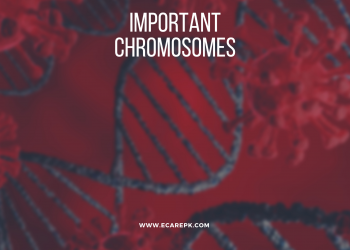▉Q1: Name three common household substance having:
(a) pH value greater than 7 Ans:
(i) White Wash Ca(OH)₂
(ii) Caustic Soda NaOH
(iii) Milk of Magnesia Mg(OH)₂
▉(b) pH value less than
7Ans: (i) Sour milk Lactic Acid
(ii) apple Malic Acid
(iii) Lemon Citrus
(c) pH value equal to 7 Ans:
(i) Table salt solution NaCl
(ii) Water H₂O
(iii) Calcium chloride CaCl₂
▉Q2: Define a Base and explain all alkalis are bases, but all bases are not alkalis?
Ans: A species that release OH¯ in aqueous solution and accept a proton.
Alkali: – A soluble base called alkali. It gives hydroxides ions in solutions. So, all alkalis are bases but all bases not alkalis.
▉Q3: Define Bronsted-Lowry base and explain with an example that water is a Bronsted-Lowry base?
Ans: According to Bronsted-Lowry concept: Proton donor species are known as acids While Protons acceptor species are known as bases.
Example: HCl + H₂O H₃O⁺ + Cl¯
▉Q4: How can you justify that Bronsted-Lowry concept of acid and base is applicable to non-aqueous solutions?
Ans: “An acid is a compound which donate a proton (H⁺)” “A base is a compound which accept a proton (H⁺)”
So, the compounds which have H⁺ ions are also acts as acid in addition to water. Example: HCl The compound which has not OH ions is also act as base. Example: NH₃
▉Q5: Which kind of bond forms between Lewis acid and a base?
Ans: A coordinate bond is formed between Lewis acid and base. In this type of bond shared pair of electrons denoted by only one atom to other.
▉Q6: Why H⁺ ion acts as a Lewis acid?
Ans: H is an electron deficient. It has empty orbital. It completes its valence shell with two electrons. So, it is electrophiles as:
H H
H + N H H N H H H
▉Q7: Name two acids used in the manufacture of fertilizer?
Ans: Nitric Acid (HNO₃) and Sulphuric Acid (H₂SO₄) are used in manufacture of fertilizer.
▉Q8: Define pH? What is the pH of pure water?
Ans: It is negative logarithm of hydrogen ion. pH = log(H⁺)
Q9: How many times a solution of pH 1 will be stronger than that of a solution having pH 2?
Ans: A solution of pH 1 has 10 times higher concentration of H⁺ than that of a solution of pH 2.
▉Q10: Define the followings:
(a) Normal salt
Ans: A salt formed by total replacement of ionizable H⁺ ions of an acid by a positive metal ion or NH₄¯ ions.
(b) Basic salt
Ans: A salt formed by incomplete neutralization of poly hydroxyl base by an acid.
▉Q11: Na₂SO₄ is a neutral salt while NaHSO₄ is an acid salt. Justify?
Ans: Na₂SO₄ is formed by complete replacement of H⁺ ions from an acid. While NaHSO₄ is formed by partial replacement of H⁺ ions of an acid
Example: 2NaOH + H₂SO₄ Na₂SO₄ + H₂O
NaOH + H₂SO₄ NaHSO₄ + H₂O Q12: Give a few characteristic properties of salts?
Ans: (i) Salts are found in crystalline form.
(ii) They have high melting and Boiling point.
(iii) These are neutral compounds.
▉Q13: How are the soluble salts recovered from water?
Ans: First saturated solution is prepared and then filtered it. Filtrate it crystallized by slow evaporation. So, soluble salts are separated by crystallization method.
▉Q14: How are the insoluble salts prepared?
Ans: Insoluble salts are prepared by mixing solutions of soluble salts.
Example: AgNO₃ + NaCl AgCl + NaNO₃
Na₂CO₃ + CuSO₄ CuSO₃ + Na₂SO₄ Q15: Why a salt is neutral, explain with an example?
Ans: Because salt is formed by neutralization reaction between acid and base.
Example: NaOH + HCl NaCl + H₂O Q16: Name an acid used in the preservation of food? Ans: Benzoic acid (CH₆C₅OOH) and Acetic acid (CH₃COOH) Q17: Name the acids present in:
(a) Vinegar Ans: Acetic acid (CH₃COOH)
(b) Ant sting Ans: Formic acid (HCOOH)
(c) Citrus Fruit
Ans: ) H ―C― COOH
(d) Sour milk H
Ans: CH₃―CH
COOH
▉Q18: How can you justify that Pb(OH)NO₃ is a basic salt?
Ans: Pb (OH)NO₃ has replaceable hydroxide ion which is a indication of basic salt. Thus hydroxide ion is
neutralized by an acid. Such as:
Pb(OH) NO₃ + HNO₃ Pb (NO₃)₂ + H₂O
▉Q19: You are in a need of an acidic salt. How can you prepare it?
Ans: Acidic salt is prepared by partial neutralization of an acid with a base.
KOH + H₂SO₄ KHSO₄ + H₂O
▉Q20: Which salt is used to prepare plaster of Paris?
Ans: Calcium sulphate or gypsum (CaSO₄.2H₂O) is used to prepare plaster of Paris.
http://feeds.feedburner.com/ecarepk








